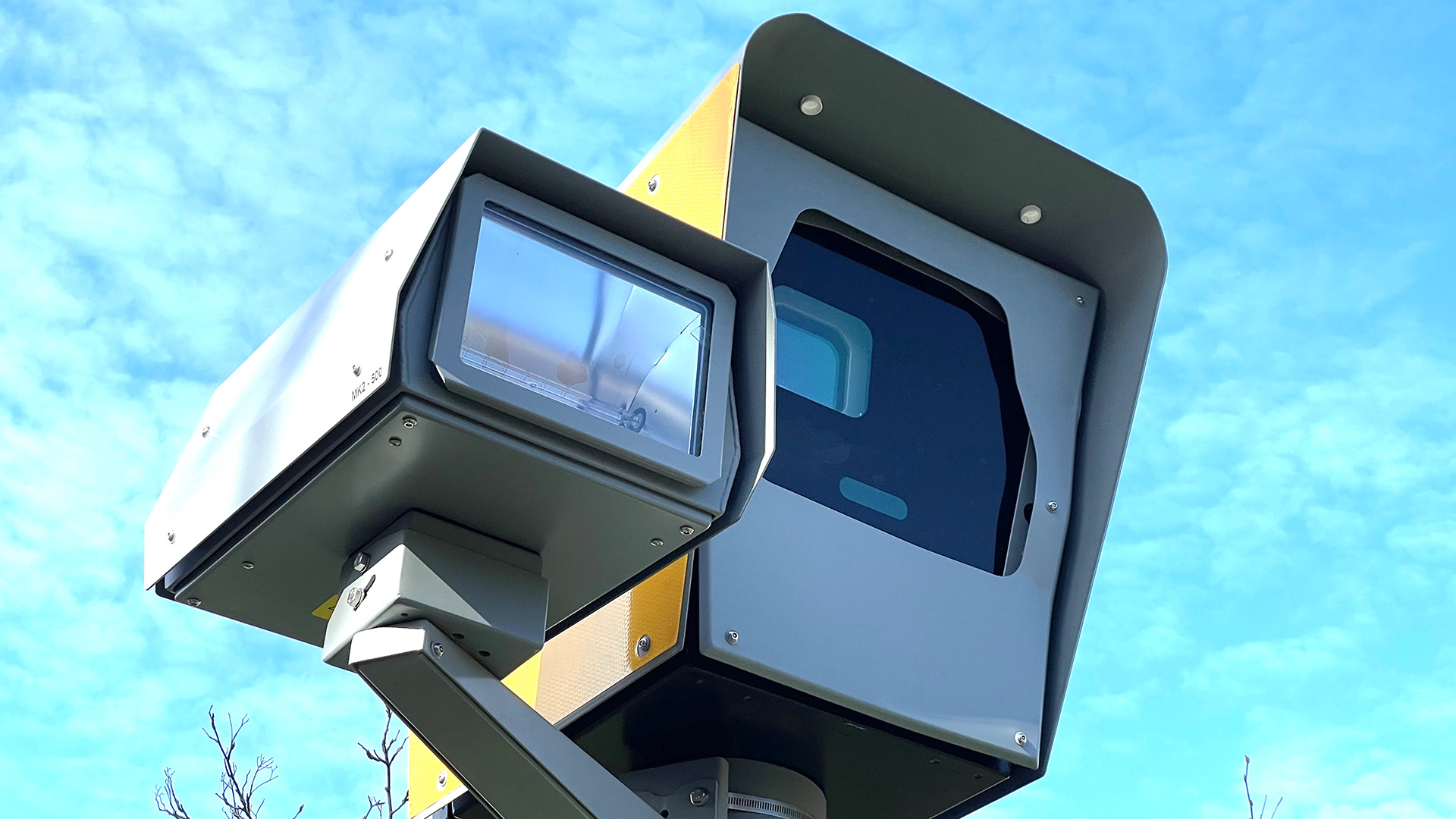

People of California: Look out. Speed cameras are coming. Governor Gavin Newsom recently signed a bill into law that approved a new pilot program that legalizes speed cameras for the first time ever in the Golden State, and details are now emerging about their rollout in Los Angeles, San Francisco, and other cities in America’s largest car market.
The pilot program is scheduled to run for 18 months in Los Angeles beginning early next year. At first, the speed cameras will only be installed in specific high-risk areas, including certain sections of freeways, school zones, and streets with chronic speeding issues. The city of Los Angeles put out a statement in strong support of the bill, saying, “Speed is the number one factor in crash severity.” As a local, I can confirm that speeding is endemic on LA’s freeways and surface streets, but whether a handful of cameras can curtail the issue in a city with over 6,600 miles of roads is a much larger debate.

Fines will be issued on a sliding scale with provisions for folks within a certain percentage of the poverty line. The maximum penalty will be $500 for going 100 mph (not a typo) over the posted speed limit, while the fine for going 11 mph over will be $50. Individuals under the federal poverty line can have fines reduced by 80% for a maximum of $100 or do community service. The cameras will be fully automated, and drivers will receive no points on their licenses for speed violations issued by the camera system. Oh, and drivers will only get warnings for the first 60 days of the program.
Revenue from the tickets will pay for the cameras and the addition of other speed-curtailing infrastructure like medians, traffic circles, and bike lanes. While local officials insist that the cameras are a life-saving measure rather than a revenue-generating one, there is no doubt that cities stand to make decent money from them. According to LAist, speed cameras in Chicago were found to have a positive effect on car-related injuries and deaths, and generated $84.5 million in revenue.
The lack of speed cameras in California until now has been a surprising (and welcome) gap in the state’s regulatory infrastructure, in part due to a longstanding law requiring radar guns to be operated by a human police officer on location to issue a ticket. That’s also why the pilot program is being presented as a limited experiment: The bill says that unless the cameras cause a reduction in the 85th percentile of speed, a 20% reduction in vehicles that exceed the speed limit by 10 mph, or a 20% reduction in two-time violators in a single location, the program will shut down after 18 months.
Be on your best behavior, Angelinos. They might go away if we all go slow for a year or two. (But really—they probably won’t.)
Got a tip? Email tips@thedrive.com